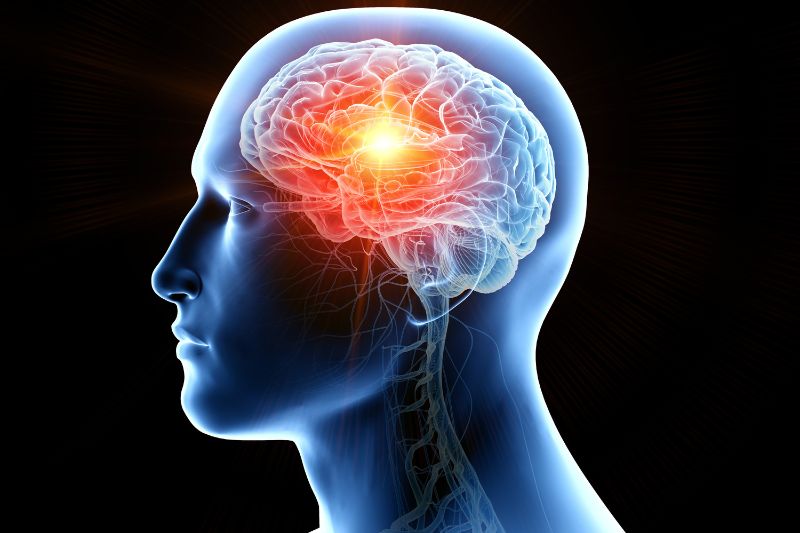Transcranial Magnetic Stimulation (TMS) is an innovative, non-invasive procedure that leverages electromagnetic fields to modulate neural activity within the brain. Over the years, it has gained traction in the medical community and is increasingly recognized as a promising treatment for various neurological and psychiatric conditions, offering a new avenue for those who have not found relief through traditional therapies. In this article, we will delve deeper into how Transcranial Magnetic Stimulation (TMS) affects the brain, drawing on insights from the esteemed neurologist, Dr. Jennifer McMonigle. Transcranial Magnetic Stimulation (TMS) operates by delivering magnetic pulses through a coil placed on the scalp. By targeting regions known to involved in mood regulation, cognition, or motor control, Transcranial Magnetic Stimulation (TMS) can effectively influence the neural circuits associated with these functions, leading to potential therapeutic effects.

At its core, Transcranial Magnetic Stimulation (TMS) works by modulating synaptic plasticity—the brain's remarkable ability to adapt and rewire itself in response to experiences or stimuli. By exciting or inhibiting neurons, Transcranial Magnetic Stimulation (TMS) can either increase or decrease the activity in targeted brain regions. This flexibility makes it a powerful tool for addressing conditions like depression, anxiety, and chronic pain, where certain brain areas may be underactive or overactive. The stimulation can help restore balance to these neural circuits, promoting healthier brain function.
1. Prefrontal Cortex - Often targeted in treatments for depression, the prefrontal cortex plays a crucial role in mood regulation, decision-making, and executive functions. Transcranial Magnetic Stimulation (TMS) can help normalize activity in this area, potentially alleviating symptoms of depression and improving overall cognitive function.
2. Motor Cortex - Transcranial Magnetic Stimulation (TMS) can also be employed to treat motor disorders or aid in stroke rehabilitation by stimulating the motor cortex, thereby enhancing motor function and promoting recovery. This application is particularly valuable for patients seeking to regain mobility and strength after neurological injuries.
3. Amygdala and Limbic System - Although more research is needed to fully understand the implications, early studies suggest that Transcranial Magnetic Stimulation (TMS) might also impact areas involved in emotional processing, offering potential benefits for anxiety disorders and post-traumatic stress disorder (PTSD). Targeting these regions could lead to breakthroughs in managing emotional dysregulation.
One of the most well-established uses of Transcranial Magnetic Stimulation (TMS) is in treating major depressive disorder (MDD). For patients who do not respond to traditional antidepressants, Transcranial Magnetic Stimulation (TMS) offers a ray of hope. Clinical trials have demonstrated significant improvements in mood and overall mental health after a series of Transcranial Magnetic Stimulation (TMS) sessions, with lasting effects after treatment. Many patients report not only reductions in depressive symptoms but also enhancements in their overall quality of life, including better relationships and improved daily functioning.
Beyond its applications in psychiatric conditions, Transcranial Magnetic Stimulation (TMS) has shown promise in treating neurological disorders such as Parkinson's disease, migraine, and even tinnitus. By modulating neural activity, Transcranial Magnetic Stimulation (TMS) can help alleviate symptoms, improve quality of life, and complement existing therapies. For instance, in Parkinson's patients, Transcranial Magnetic Stimulation (TMS) may help in reducing tremors or enhancing motor skills, while migraine sufferers may experience a decrease in the frequency and intensity of their episodes.
Emerging research has begun to explore Transcranial Magnetic Stimulation (TMS) as a tool for cognitive enhancement. Targeting areas like the dorsolateral prefrontal cortex, Transcranial Magnetic Stimulation (TMS) has been studied for its potential to improve attention, memory, and learning capabilities, particularly in individuals with cognitive impairments. This aspect of Transcranial Magnetic Stimulation (TMS) could pave the way for novel interventions aimed at enhancing cognitive functioning in neurodegenerative conditions or age-related decline.
While Transcranial Magnetic Stimulation (TMS) is generally considered safe, it is not without challenges. Some patients may experience mild side effects such as headaches, scalp discomfort, or transient changes in mood. Additionally, the effectiveness of Transcranial Magnetic Stimulation (TMS) can vary based on individual differences, including the specific condition being treated and the precise targeting of brain regions. Furthermore, ongoing research is necessary to fully understand the optimal parameters for Transcranial Magnetic Stimulation (TMS) application, such as frequency and duration of treatment, to maximize benefits while minimizing risks.
